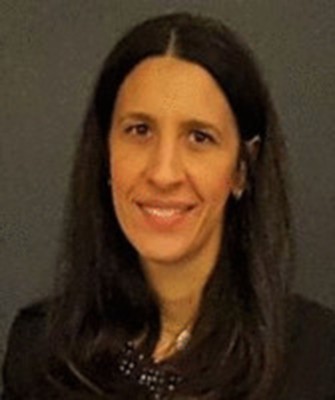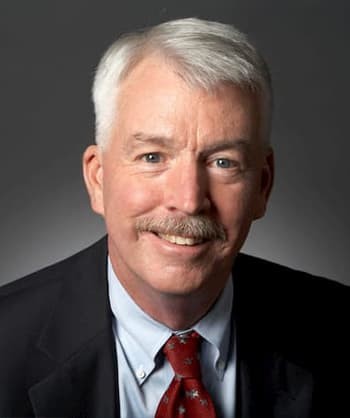Inequities
Boston College Law School Lex Latinx Webinar Series


Boston College Law School’s Lex Latinx webinar series is a series of five online conferences in Spanish with simultaneous translation to English, with speakers from different Latin American Universities and BC Law Faculty discussing human rights protection during the pandemic as well as perspectives for the post-pandemic.
[embeddoc url=”http://sites.bc.edu/responding-to-covid-19/wp-content/uploads/sites/50/2020/08/Spanish-Webinars-english-translation-May-28.docx” download=”none” viewer=”microsoft”]Air pollution interventions: Global research report released by BC’s Schiller Institute and partners identifies top five actions to benefit health and climate

“Climate change and air pollution are major threats to human health and economic development that must be addressed. The COVID pandemic has raised the stakes considerably,” says report co-author and Professor of Biology Phil Landrigan, M.D., director of the Schiller Institute’s Global Observatory on Pollution and Health. “It is essential to understand the extent to which these issues can be tackled together. Policymakers can use this report to prioritize investments that are the most effective in generating co-benefits across health and climate.” —from BC News
Vivere ai tiempi del coronavirus | Living in the Time of Coronavirus

A few years after receiving the Nobel Prize for Literature in 1982, the Colombian writer Gabriel García Márquez published his novel Love in the Time of Cholera.[1] Years earlier, the Swedish doctor Axel Munthe, who came to Naples in 1884 to treat the victims of a cholera epidemic, wrote his Letters From A Mourning City.[2] In both cases, an epidemic caused by the bacterium Vibrio cholerae is the background for deeply human stories (imaginary in Márquez’s novel and real in Munthe’s letters). Márquez and Munthe invite us to contemplate how it is possible to live “in the time” of an epidemic, as involuntary witnesses of human suffering, eager to help the most needy and aware of the risks of contagion.
[embeddoc url=”http://sites.bc.edu/responding-to-covid-19/wp-content/uploads/sites/50/2020/07/Vicini_Vivere_ai_tempi_del_Coronavirus_CC_2020-Andrea-Vicini.pdf” download=”all” viewer=”google” ]Syllabus: #Shop-Apocalypse: Consumer Culture’s Past and the Fate of the Planet


Course Description: Although we are increasingly aware that our habits of consumption affect the environment, it is hard to imagine that consuming patterns are capable of being changed. In this class, students will learn that practices of consumption are both socially and historically constructed, that they change dramatically over time, and that there are (and always have been) urgent moral issues connected to practices of consumption. We will explore the global, social, and environmental dimensions of consumption, studying things like the 1897 Sears catalog, 1950s television shows, Canada Goose jackets, DIY manuals and makerspaces, and hippy cookbooks of the 1960s.
History 1710 / Sociology 1714
[embeddoc url=”http://sites.bc.edu/responding-to-covid-19/wp-content/uploads/sites/50/2020/07/Syllabus-ShopApocalypse-Post-Covid-19-Juliet-Schor.pdf” download=”all” viewer=”google” ]Cross-border implications of the US response to covid-19: an escalating health crisis on Mexico’s northern border

Alejandro Olayao-Méndez, SJ contributed to a 9 July 2020 blog post on bmj.com. >>>
On 20 March 2020, the Trump administration announced that it would be limiting nonessential travel across US land borders [1]. Citing the threat of covid-19, the processing of asylum seekers or those who enter the US without appropriate documentation or authorization would, without delay or legal process, be deported [2]. These policy changes, and subsequent others, have created an acute-on-chronic health crisis amongst asylum seekers and migrants on Mexico’s northern border [3].
Consistent with previously unsubstantiated claims that asylum seekers pose a public health threat to the US, the United States government purported that these policies were needed to safeguard Americans from covid-19 [4,5]. Yet at the time of the announcement, there were over 17,000 confirmed cases of covid-19 in the US, compared to only 164 cases in Mexico, and 37 cases reported in Guatemala, El Salvador, and Honduras combined [6,7].
Diamond, M., Novak, C., Testa, L., Olayao-Méndez, A. (2020, July 9). Cross-border implications of the US response to covid-19: an escalating health crisis on Mexico’s northern border. TheBJMOpinion. <https://blogs.bmj.com/bmj/2020/07/09/cross-border-implications-of-the-us-response-to-covid-19-an-escalating-health-crisis-on-mexicos-northern-border/>
Improving Ventilator Rationing Through Collaboration With Experts on Resource Allocation


As the coronavirus disease 2019 pandemic evolves, questions regarding the fair allocation of scarce medical resources, such as ventilators, antiviral drugs, and vaccines, abound. Piscitello et al1 provide a valuable summary of US state ventilator allocation guidelines during public health emergencies. Even if guidelines for ventilators have not been widely implemented during the current pandemic, the principles they articulate are an important statement of social values. The variation among guidelines that Piscitello et al1 uncovered suggests that there is no consensus on the adequate balance between different ethical considerations.
Pathak PA, Sönmez T, Ünver MU. Improving Ventilator Rationing Through Collaboration With Experts on Resource Allocation. JAMA Netw Open. 2020;3(6):e2012838. doi:10.1001/jamanetworkopen.2020.12838
Considerations for school leaders serving US immigrant communities in the global pandemic

Purpose – In this commentary, the authors consider how the COVID-19 pandemic has impacted immigrant education and professional communities in schools, discussing the implications of these shifts for school leaders in the United States.
Design/methodology/approach – After providing an overview of relevant issues, the authors explore four specific areas for leaders to reflect on in their work.
Findings – The pandemic presents so many challenges to immigrant communities and educators. The reshaping of professional community in schools can help ameliorate these issues.
Originality/value – Our commentary contributes some initial insights to the evolving equity issues emerging in the midst of pandemic
Journal of Professional Capital and Community
Everything Old is New again: COVID-19 and Public Health

In the fall of 1918, the influenza pandemic tore across the world. Public health nurses in cities throughout this country cared for some of the most vulnerable—sick children and families from poor communities, their fragile economies further devastated by this scourge. At that time, nurses’ practices were governed by Florence Nightingale’s precepts of good hygiene, nutrition, fresh air, and rest. They worked to do right by their patients, but their ability to make a difference was tempered by the lack of existing knowledge and resources needed to provide the most efficacious care possible
Journal of Pediatric Nursing 52 (2020) A7–A8